International
Analyst León Valencia: The ELN subordinated peace to its plan to seize the border
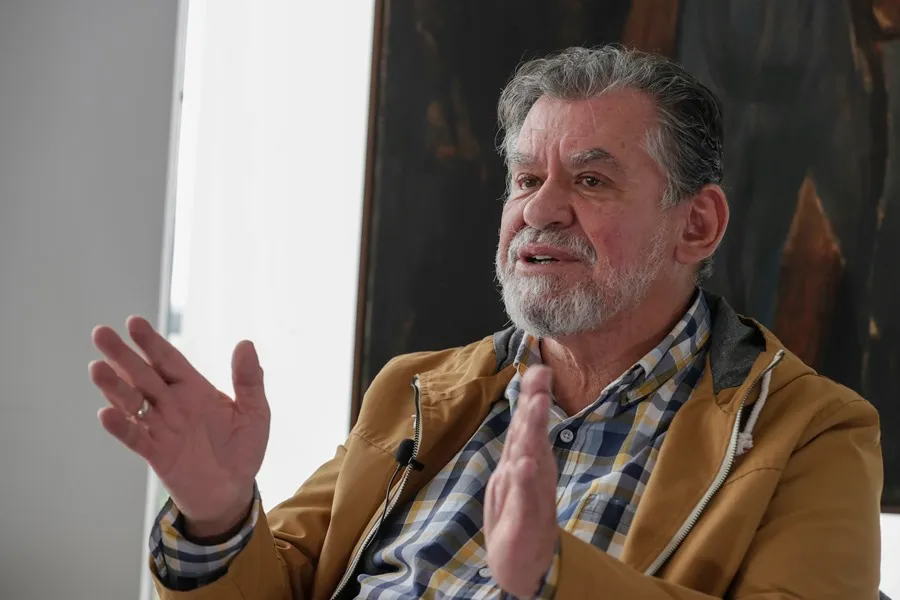
Analyst León Valencia, director of the Peace and Reconciliation Foundation (Pares), states in an interview with EFE that the guerrilla of the National Liberation Army (ELN) “subordinated” the peace negotiations with the Government to a plan to seize the Colombian-Venezuelan border.
“They subordinated peace to their strategy of seizing the border. Really what they have shown at this time is that their main objective is to have control of that border, grow on that border and be the master of the border between Colombia and Venezuela,” says Valencia, who in his youth was a member of the ELN.
Colombian President Gustavo Petro announced on January 17 the suspension of peace talks with the ELN, which he accused of committing “war crimes” in the Catatumbo region, where a confrontation between that guerrilla and the Front 33 of the FARC dissidents has left at least 56 dead and more than 54,000 displaced since January 16.
In that sense, the director of Pares, who analyzes everything that happens with the ELN in the book ‘Is lead what’s coming?’ (Penguin Randon House), considers that the fact that the guerrillas are facing another “armed left” group and not the Military Forces claims that “their main idea is to seize that border, fighting against the other illegals”.
The analyst, one of the greatest experts on the Colombian armed conflict, believes that the guerrilla has offered itself as “a support force” to the Chavista leader Nicolás Maduro “in the event of a foreign aggression” on Venezuela.
Valencia says that the guerrillas allied with the Venezuelan Government in 2019 to “sweep the paramilitaries” that were at the border, a successful operation because at that time, according to Pares figures, there were 27 armed groups there and only a few remain.
However, something that the ELN did not count on, in Valencia’s opinion, is that Petro did not cut off relations with Maduro after his questioned possession on January 10, which has led both countries to work together to face guerrilla violence on the common border of 2,219 kilometers.
“That is a little out of place for them, (they thought that Petro) was going to break relations with Venezuela and that Maduro was going to face (the President of the United States, Donald) Trump very hard and that Trump was also going to act immediately against Venezuela. Now the thing is temporarily very strange,” he says.
The main bet of the Petro Government was the policy of ‘Total Peace’, with which it sought to negotiate an agreement with the ELN and FARC dissidents, as well as the submission to justice of the main criminal gangs in the country.
However, with 18 months to go until the end of his mandate, the most advanced negotiation was that of the ELN and the president’s proposal seems to be shipwrecked.
In Valencia’s opinion, it is difficult to understand why the guerrillas are not signing peace with the first left-wing government in Colombia, although he believes that Petro was wrong to think that “ideology” and having “a similar speech” was going to be enough to disarm the ELN.
“The conflict changed radically, which is what we say in our book ‘Is lead what’s coming?’. We make an X-ray of the change in the conflict of some guerrillas who threatened the State and wanted to take central power and who are no longer in that now,” he explains.
Neither the ELN nor the FARC dissidents seek, as they intended before, to take power, but now “they are on the borders, in the regions, occupying territories, controlling the population, attacking the population, they are in something else”.
“There is a turn of the conflict and the ELN is in it. He gave up the seizure of power and is more in a task that they call resistance, they declare it publicly (…) It is a resistance of the ‘global south’, which is a series of groups and countries that have ideas of revolution, that have autocratic governments and are in something else,” says Valencia.
In this context, the director of Pares warns that the Military Forces and the Police must make a “very big operational change.”
“The intelligence that was made to look for where the ELN comes from, where the FARC come from to attack the State is no longer useful. Where do these groups go to seize a border, a region, how do they attack the population? It is another type of intelligence and it is what the State is not doing,” Valencia concludes.
International
Colombia: Search continues for missing limb of italian scientist found dismembered
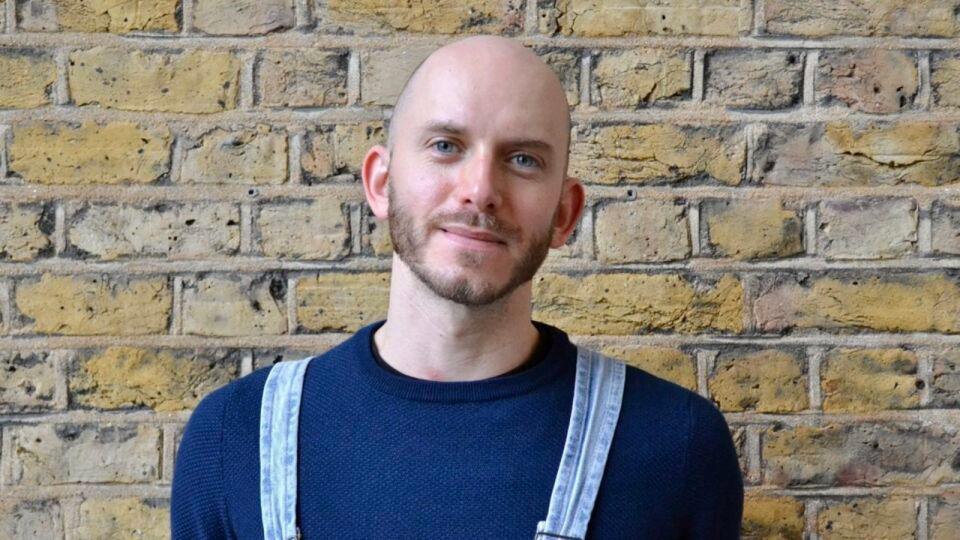
Rescue teams and Colombian authorities continued their search on Tuesday for the missing left leg of Italian biologist Alessandro Coatti, whose dismembered body was found in the Caribbean city of Santa Marta.
Coatti, 42, was a molecular biologist who had been traveling through South America after working for eight years at the Royal Society of Biology (RSB) in London.
He had been staying in a hotel in Santa Marta since April 3 and was later reported missing. His dismembered body began to be discovered on April 6, when parts were found inside a suitcase abandoned near a football stadium in an area known as Bureche.
“We’re conducting the search along the riverbanks and in the water to identify possible spots where, due to the river’s current, the missing left leg might be located,” Karlotz Omaña García, director of the Magdalena Civil Defense, told The Associated Press. Despite covering a 500-meter radius, the limb was not found.
Authorities have not named any suspects or shared possible motives. A reward of more than $11,000 has been offered for information leading to those responsible for the foreign scientist’s murder.
Police continue to reconstruct Coatti’s final movements. According to Colonel Jaime Ríos, head of the Santa Marta Metropolitan Police, the Italian biologist arrived in Colombia in January and had visited several locations, including Medellín, before traveling to Santa Marta.
Security footage shows Coatti was in downtown Santa Marta the night before his body was found, the colonel added.
Santa Marta, a popular Caribbean tourist destination, is known for its clear beaches. Police believe Coatti may also have visited Tayrona Park, a protected coastal area located about 34 kilometers (21 miles) from the city center.
International
MPV Denounces Electoral Blockade as Secretary-General is Disqualified for May Elections
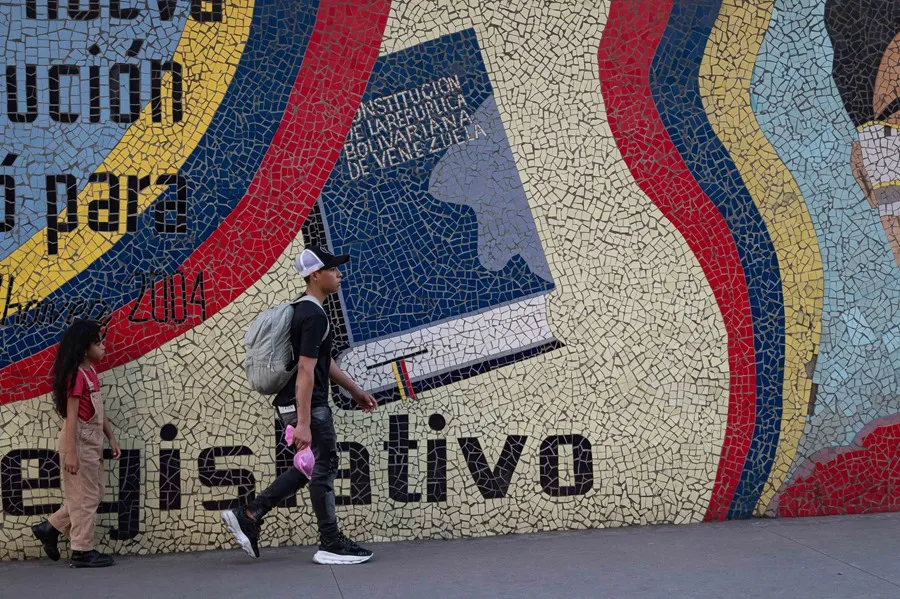
The anti-Chavista party Movement for Venezuela (MPV) denounced on Monday that it was “prevented” from submitting its candidates for the regional and legislative elections on May 25, elections rejected by opposition leaders Edmundo González Urrutia and María Corina Machado.
“MPV, being an active and recognized party in the National Electoral Council (CNE), was prevented from submitting candidates for the current electoral process,” stated the political group through a communiqué on X.
Additionally, the group denounced that its Secretary-General, Simón Calzadilla, was “suddenly disqualified,” as the opposition leader warned last Friday. He also explained that he attempted to access the CNE’s automated candidate submission system but, as he added, the portal showed that he was not authorized to create a user and submit the MPV candidates.
For the party, its “strong decision” to participate in the May elections “highlighted the true nature of this electoral process,” which it described as “extremely flawed.”
International
Maduro Plans Major Workers’ March on May 1st to Defend Venezuela’s Freedom
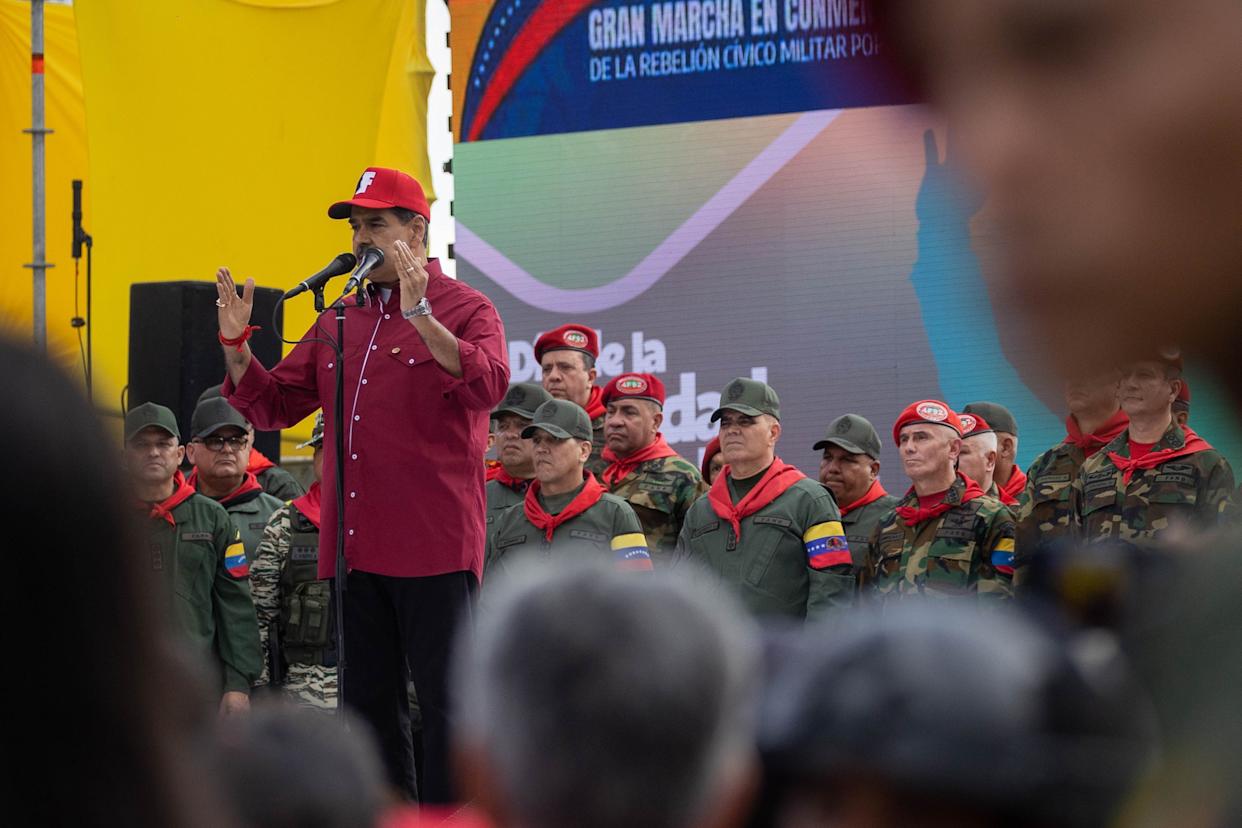
Nicolás Maduro, who swore in for a third term in January following his controversial re-election, called on Monday for the “working class” and the “armed people” to gather for a concentration on May 1st for peace, as part of the celebration of International Workers’ Day.
“Let’s have a powerful march of the working class, the combat bodies, and the Bolivarian National Militia in all the cities of the country, from end to end, working class and armed people in the streets shouting for peace,” said the chavista leader in a broadcast on the state channel Venezolana de Televisión (VTV), surrounded by military authorities.
He also stated that Venezuela is more armed than “ever” to “defend the sacred dream of a free homeland, the sacred soil of a heroic land, Venezuela.”
Maduro called on all military personnel to “stay in shape” with a “deployment capacity” and also to have “a very clear view of the entire national territory.”
-

 International5 days ago
International5 days agoDominican Republic mourns over 200 dead in Jet Set nightclub collapse
-

 International5 days ago
International5 days agoTwo fans killed in gate collapse outside Chile’s Estadio Monumental
-
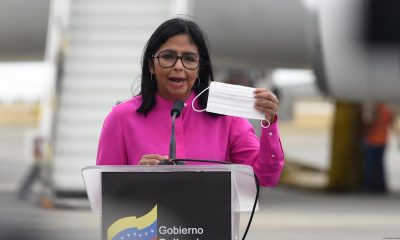
 International3 days ago
International3 days agoVenezuela accuses Guyana of “warlike intentions” after UK defense deal
-
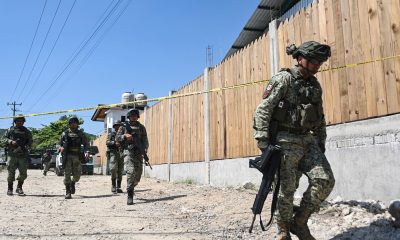
 International4 days ago
International4 days agoTrump Authorizes Military to Take Control of Federal Land Along U.S.-Mexico Border
-

 Central America4 days ago
Central America4 days agoSpanish Ex-Congresswoman Calls for ‘Bukele-Style’ Security Policies in Europe
-

 International3 days ago
International3 days agoNightclub Collapse in Dominican Republic Claims 226 Lives
-

 International5 days ago
International5 days agoVenezuelan oil shipments resume after tariff-induced delays
-
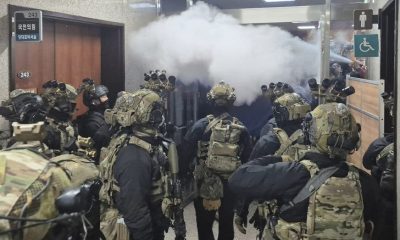
 International5 days ago
International5 days agoConstitutional Court Removes Yoon: Lee Jae-myung’s Rise Sparks Warnings of a Radical Shift
-

 Central America1 day ago
Central America1 day agoHonduran Police Offer $135K for Tips Leading to the Arrest of Romeo Vásquez
-

 International1 day ago
International1 day agoMaduro Plans Major Workers’ March on May 1st to Defend Venezuela’s Freedom
-

 International1 day ago
International1 day agoMPV Denounces Electoral Blockade as Secretary-General is Disqualified for May Elections
-

 Central America9 hours ago
Central America9 hours agoPetro questions Ecuador’s vote, cites reports of military control and arrests
-

 International9 hours ago
International9 hours agoColombia: Search continues for missing limb of italian scientist found dismembered















